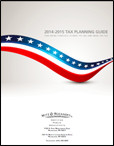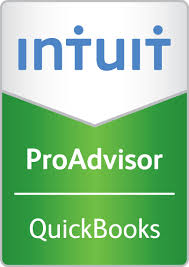For 2015, there are several important new IRS guidelines for tax-advantaged retirement savings. For many individuals, there are several opportunities to increase contributions but due to new restrictions, proper planning of your IRA contributions and Flexible Spending Account rollovers is essential. The changes include:
1. Higher Income Limits for IRA Contributions
The income limits for deductible contributions to IRAs have been raised and vary based on whether the taxpayer and/or his or her spouse are eligible to participate in an employer-sponsored retirement plan. The traditional IRA contribution tax deduction has been phased out for investors who have a workplace retirement plan and a modified adjusted gross income of more than $61,000 but less than $71,000 for individuals, and more than $98,000 but less than $118,000 for couples in 2015. For individuals who don’t have a workplace retirement plan but are married to someone who does, the tax deduction for an IRA contribution is phased out if the couple’s income is more than $183,000 but less than $193,000 in 2015. The maximum contribution for an IRA remains at $5,500 for people under 50, with an additional catch-up of $1,000 for those 50 and older for a total of $6,500.
2. Higher Roth IRA Contributions Income Limits
For 2015, the income limits for Roth IRA contributions will increase in 2015 by $2,000. The new limits are $116,000 or more but less than $131,000 for individuals, and $183,000 or more but less than $193,000 for married couples.
You can have both a traditional and Roth IRA, but you can only contribute a maximum of $5,500 (or $6,500 if you’re 50 or older) across both accounts each year.
Please note: Based on the Roth IRA income limitations, if a taxpayer is not sure whether he/she will qualify due to higher income, they should wait until 2015 is over and their income tax return has been prepared to make the contribution. If they make the contribution in 2015 and then find out their income precludes them from making the contribution, they will be subject to a penalty tax.
We will gladly guide you through this decision process by consulting with you, including making a tax projection, during the year tax year. Please contact us to set up an appointment.
3. Higher Contribution Limits for Employer Plans
Contributions to taxpayer’s 401(k), 403(b), most 457 plans, and the federal government’s Thrift Savings Plan in 2015 will increase to $18,000. There is also a $6,000 increase in the catch-up contribution limit in 2015 for a total contribution limit of $24,000 for employees age 50 and older.
4. IRA Rollovers Limitations
Beginning on Jan.1, 2015, there is essentially a limit on what has been typically called an ‘indirect rollover’—where an IRA owner takes a distribution of all or part of the account and moves it into a new IRA. Investors are limited to one rollover from one IRA to another in any 12-month period. A second IRA-to-IRA rollover in a single year could result in income tax becoming due on the rollover plus a 10% early withdrawal penalty, and a 6% per year excess contributions tax, as long as that rollover remains in the IRA.
There is, however, no limit on trustee-to-trustee transfers between IRAs or conversions from traditional to Roth IRAs in the same year. This direct rollover transfer method allows you move IRA funds between accounts without taking control of the money, similar to how you would roll a 401(k) into an IRA.
5. Changes in Health Expense Accounts
Health Flexible Spending Accounts (FSAs) are used to save pre-tax dollars to pay for healthcare expenses. They must be used within a plan year. If you want to set up a Health Savings Account (HSA) for 2015, it may actually be better not to carry forward unused FSA amounts (up to $500), even if it means that you will lose them.
Previously, you have been allowed to roll over $500 from an FSA into the next plan year. However, there is a change for 2015 that may restrict the benefit for those who are considering contributing to a HSA. If you had a balance in your FSA at the end of 2014 and you decide to carry over $500 of it into 2015, you will be ineligible to participate in an HSA in 2015. This restriction does not apply to FSAs for specific uses, such as dependent care or dental expenses. You should plan ahead and balance the benefit of each option.
The annual dollar limit on employee contributions to employer-sponsored healthcare flexible spending arrangements (FSA) rises to $2,550, up $50 from the amount for 2014.
Key Takeaways
* The maximum amount you will be able to contribute to your 401(k) plan, starting in 2015 has increased to $18,000.
* ‘Indirect’ IRA rollovers are limited to one every 12 months starting in 2015. However, you can still do unlimited IRA ‘direct’ rollovers between trustees.
* If you are planning to set up an HSA in 2015, consider forfeiting the unused portion of your 2014 FSA if it precludes your HSA eligibility.
If you have any questions on these new IRS guidelines, please contact Mitz and Rozansky, SC at 414-352-3200.



 The latest version for 2014 is no exception. We look forward to implementing this upgrade for our existing QuickBooks® clients and to introducing it to clients where converting to this product can be a real asset for their business. I believe in the value of this product and look forward to continuing our great association with QuickBooks® well into the future.
The latest version for 2014 is no exception. We look forward to implementing this upgrade for our existing QuickBooks® clients and to introducing it to clients where converting to this product can be a real asset for their business. I believe in the value of this product and look forward to continuing our great association with QuickBooks® well into the future.